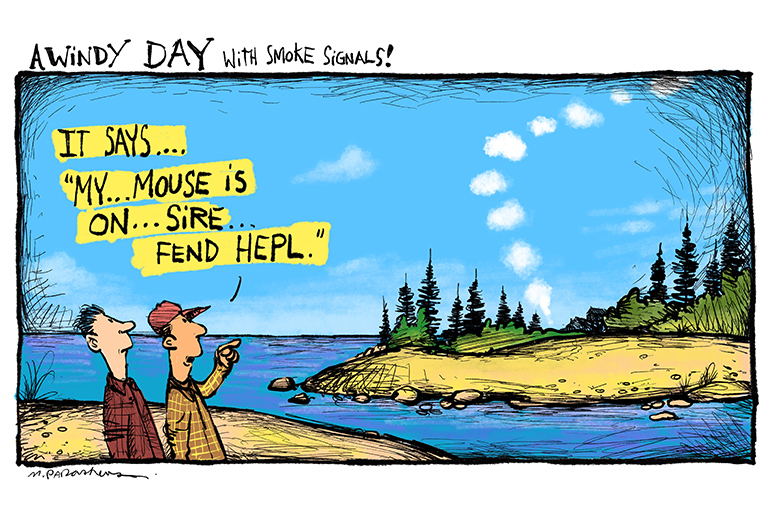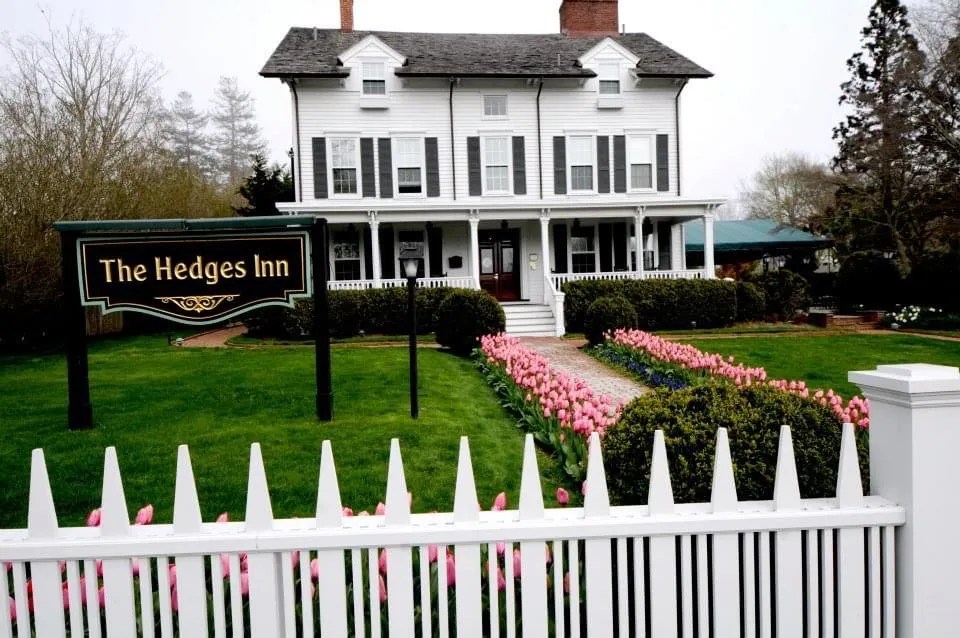Sending Messages: How Gardiners Island Communicated with Mainland in the 17th Century

Gardiners Island was settled in 1639 by an Englishman named Lion Gardiner, who bought it from the Montaukett Indians. He came here from Connecticut with his wife and children, his servants and slaves, his workmen and farmers, and, as a result of a charter granted by the King of England, he became the proprietor of what, for a short time, was the fifth American colony. The others were Massachusetts, Virginia, Connecticut and Maryland—New York did not receive its charter until 1676.
And those who settled on Long Island, one year after Gardiner settled Gardiners Island, did not get chartered, and so for important business deferred to Connecticut. For example, when the wife of one of the townspeople in East Hampton was accused of being a witch, she was taken to Connecticut and put on trial, because being a witch could get you burned at the stake. Towns were not authorized to decide capital punishment cases.
A witch could be burned at the stake at the colony of Gardiners Island, though. In fact, when one servant murdered another on Gardiners Island in the late 1600s, the Lord of the Manor at that time, John Gardiner, decided the murderer should be hung, and he was. Robert D.L. Gardiner, who from 1953 to 2004 was the Lord of the Manor, once pointed out to me the tree where the man was hung. Eventually, however, after New York was chartered, Gardiners Island was swallowed up by the Province of New York. It is now a privately owned part of East Hampton Township in New York State.

Another interesting fact about Gardiners Island is the ownership of the waters around the island. The original 1639 charter says the Gardiner ownership extends as far out from the main island as an ox can walk before the water comes up to its underbelly.
And still another interesting fact about Gardiners Island is the explanation for bonfires being lit on a particular beach in the early days. The island beach faced a beach in the community of Springs on the mainland two miles across the bay. That mainland beach also had bonfires. That is how the people on the mainland communicated with the islanders back then. If some produce was ready to be shipped to the mainland from the farm on the island, a bonfire would be lit. A fire then on the mainland beach would mean a boat would be sent to the island shortly. The road to that fireplace on the mainland was named Springs Fireplace Road by those on the mainland. It remains named that today.
All of the above things are true about Gardiners Island. But now, thanks to Google, I’ve come across more new information about the island. True? Not true? Who knows?
There is a claim that the Montaukett Indians during those early days taught the settlers a much more sophisticated way to communicate with bonfires. They taught smoke signaling.
By carefully waving a blanket over a fire, you could make the smoke rise as short or long puffs. So a series of puffs—for example short, long short—would mean that the produce was strawberries. And short, long, long, short would mean corn. And short, long, long, short, short would mean potatoes. The settlers seized on this. Here was actual communication, not just a signaling.
Here are other things the smoke signals meant to the early settlers.
We have sheep’s wool ready. Short, long, short long.
We need more rolls of paper towels. Short, long, short long.
I’ve fallen and I can’t get up. Short, short, short, short.
Call 911. Very long, short, short.
Have a nice day. Long, long, long.
Can we borrow the keys to the truck? Long, long, short, short, short.
We have a really fast horse here. Wanna set up a race? Long, long, short, short, short, short, short.
Would Mr. Gardiner like to have brunch with Mr. Lester on the mainland tomorrow? Short, long, very long, very very long, short, short, short.
Happy Valentine’s Day. Short, long, short long, short, long, short.
Mr. Gardiner respectfully requests Miss Ida Herrick to marry him. Short, short, short, short, short.
When Wyandanch gets back from Huntington, tell him we have some mail for him. Short, long, very long, very long, very very long.
The Montaukets also showed the settlers how to reset a password each morning so the puff situation would be password protected. The settlers didn’t do this, though. It was, after all, they said, just them and the Indians.



